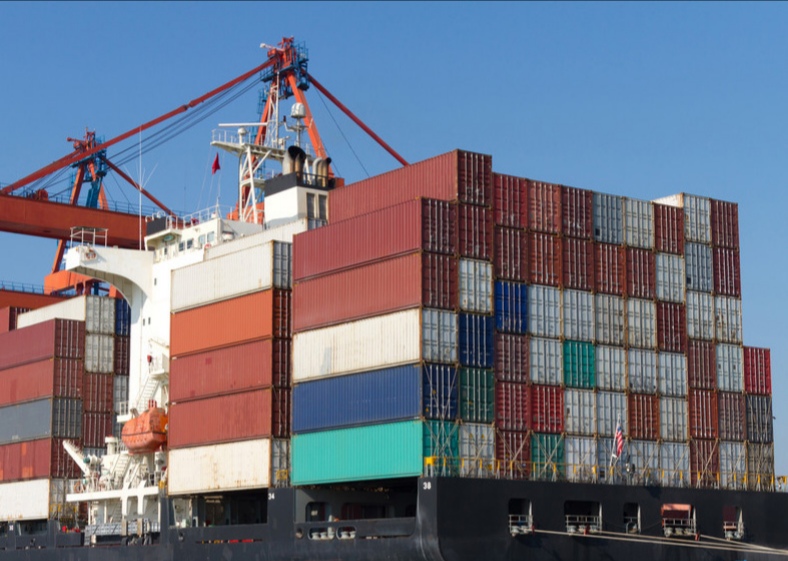
Why Singapore is a global logistics hub
Singapore’s economy is considered the most important economy in Asia, as it has occupied an advanced position in the field of trade and logistics operations. Singapore has also gained a global reputation as a logistics services center for several reasons, including: its geographical location near several straits, and its economic prosperity.
However, the most important factor is that Singapore has established an advanced infrastructure to become an important global center for shipping operations, through the establishment of airports such as Changi Airport, in addition to the development of its seaports, which form a link in the supply chain between exporting and importing countries, and the Singaporeans have great experience in the field of shipping operations, benefiting from the technological development in this country.
Reasons Why Singapore Is A Logistics Hub

Technological development
Singapore has harnessed advanced technology and artificial intelligence to help find solutions to preserve the environment and reduce pollution during shipping operations while increasing economic returns; such as using renewable energy and relying on autonomous, electric vehicles, and they have relied on remote sensors to detect irregularities in shipping operations.
In addition to relying on satellite technology to analyze data and predict congestion in sea lanes, the Singaporean government has invested around €9.35 billion in developing shipping technology.
Singapore is considered one of the leading countries in customs clearance operations due to the speed of completing the legal transactions required for the shipping process, by adopting an automation system to extract all customs operations related to goods. This system can extract about 90% of customs transactions within 10 minutes, which speeds up the mechanism of shipping goods between the exporter and the importer.
Extensive business relations worldwide
Singapore has established a network of advanced trade relations at the global level, by providing facilities for leading and emerging companies seeking to establish a business market for them, whether in Singapore or in Asia. In addition, Singapore has the largest number of free trade zones in Asia, covering about 60% of the gross domestic product.
The country has signed 13 bilateral free trade agreements and 11 regional agreements, which are considered among the largest joint trade agreements that bring together the Association of Southeast Asian Nations (ASEAN) ; Singapore is also the first country to ratify the Regional Comprehensive Economic Partnership, which includes about 15 members and represents 30% of the global economy.
Singapore’s many bilateral and multilateral free trade agreements have secured it an important position in the free flow of goods, and Singapore-based companies have access to preferential markets, free or reduced import tariffs, and secure property rights.
Development of the infrastructure of the logistics sector
The shipping sector is a major pillar of the Singaporean economy, with total revenues of around €4.2 billion, or 1.4% of Singapore’s GDP in 2019.
Singapore is working long-term to develop infrastructure that accommodates supply chain logistics operations by expanding its ports and airports.
In addition to adopting the latest technologies such as gate systems that will play a role in improving traffic operations and increasing port efficiency, knowing that Singapore’s ports are connected to more than 123 countries through about 200 shipping lines. It also handles 1/7 of the world’s productivity.

In addition, it has the capacity to handle sensitive and perishable goods, whether due to time or other environmental factors (such as transporting vaccines), and Singapore is expected to become one of the vaccine distribution hubs in Asia.
It is also investing more money in air connectivity networks for cargo companies to maintain its global level, as Changi Airport is considered one of the largest cargo airports in Asia, occupying about 1,300 hectares of land, and has two runways, each 4 km long, in addition to four passenger terminals, and its annual capacity is 85 million passengers.
Singapore aims to develop the airport and increase its cargo capacity from 3 million tonnes per year to 5.4 million tonnes, and it is attached to a free trade zone that was opened in 2003.
Private sector involvement
Recognizing the importance of the private sector, the Singaporean government has provided many facilities to attract investors, such as providing incentives and enacting laws that facilitate the work of the private sector in the field of logistics services. In addition, the Singaporean government conducts many consultations with this sector to ensure that the infrastructure that will be created will meet the needs of the business. Accordingly, private companies have invested in air freight facilities and ports.
Finally, through careful planning, advanced infrastructure, and geographic location, Singapore has been able to move from a developing country with few resources to the world’s most important logistics center.

